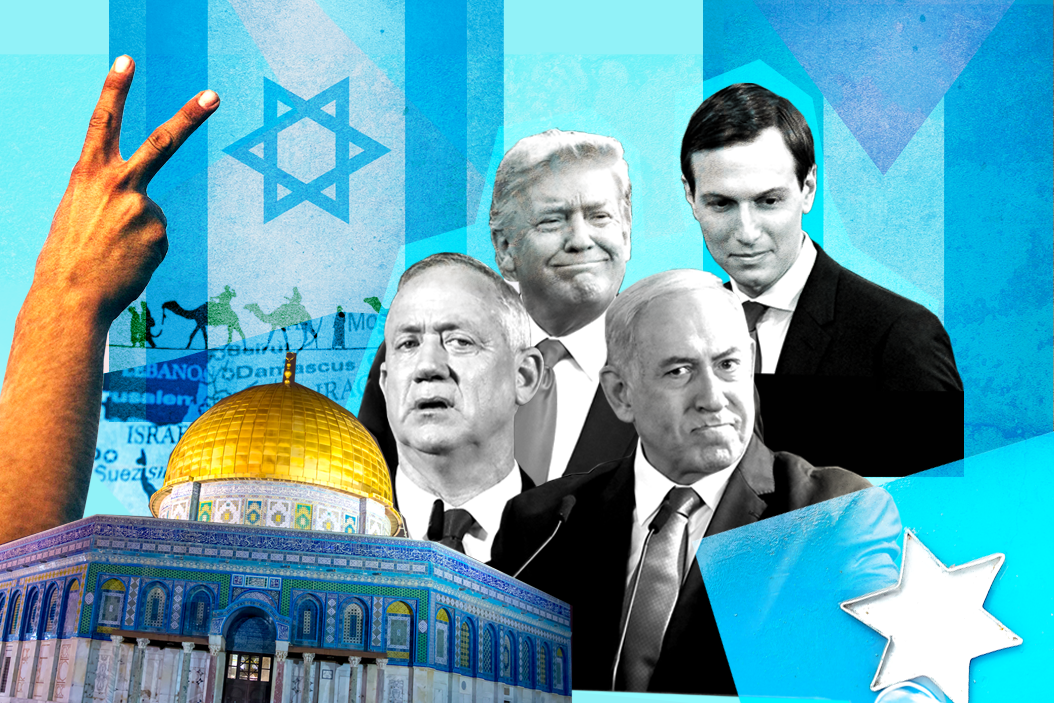For those who follow the Israeli-Palestinian conflict closely, July 1 has long been a date to watch. After the Trump administration presented a blueprint for peace between the Israelis and Palestinians earlier this year, Israel's emboldened Prime Minister Benjamin Netanyahu said he would start the process of annexing parts of the West Bank starting on July 1. That day has now come and gone, but...nothing happened. Why?
The background. The White House's Middle East peace plan, unveiled in January after years in the works, details Israel annexing around a third of the West Bank (meaning it would incorporate that territory as part of the official state) while giving Palestinians autonomy in the remaining 70 percent of that territory. The move would not extend citizenship to Palestinians in those areas even though they would be subject to direct Israeli rule. The Palestinian camp flatly rejected the proposal.
The Trump administration wavers. While at first the White House appeared to give the green light to unilateral annexation — breaking from previous US administrations by appearing to recognize Jewish settlements in the occupied West Bank as part of Israel — it has also given mixed messages on how Israel should proceed. Consider that Trump's son-in-law Jared Kushner, the plan's main architect, said in an interview with GZERO earlier this year that the US does not support annexation of wide swaths of the West Bank until a new Israeli government is in place. Israel now has a government but the Trump administration is still stalling.
Earlier this year, the Trump administration said that only if Israel agreed to resume direct negotiations with the Palestinians would the US recognize Israeli sovereignty over parts of the West Bank. (Spoiler: that hasn't happened.) While it's unclear whether the White House will give Netanyahu the green-light anyway, in recent weeks the Trump administration has made it clear that Netanyahu does not have its blessing to move ahead with annexation right now, reportedly telling the Israelis to "greatly slow the process."
This is a problem for Netanyahu because the US is the only major world power that has supported Israel's ambition to annex the settlements outright. Pushback from allies in the UK, EU, and much of the Arab world may have also shaped the Trump administration's calculus on this. (UK Prime Minister Boris Johnson, a Netanyahu ally, penned a strongly-worded op-ed in an Israeli newspaper this week where he said "annexation would represent a violation of international law.")
Netanyahu also faces internal opposition on multiple fronts. When Netanyahu formed a coalition government with his rival Benny Gantz of the centrist Blue and White party in April — after three previous elections failed to break the country's political stalemate — Gantz said he supported the Trump peace plan notionally, but that he would not back annexation unless the plan gained broader support. He recently told a White House liaison that they need to come up with "an outline that benefits all sides in a responsible, proportional and reciprocal manner," a tacit reference, it seems, to the Palestinians and the broader Arab world, suggesting that Gantz is certainly feeling the weight of international condemnation.
Netanyahu, for his part, can't move ahead without the support of Gantz, who is slated to become prime minister as part of a rotation agreement in over a year's time. For now, it's not looking promising for Netanyahu: In recent days, Gantz said that any further discussion on annexation should be on the back burner while Israel deals with an explosive coronavirus outbreak.
Cake at gunpoint. In an interesting turn of events, many within Israel's hardline settler movement, an important part of Netanyahu's base, have also voiced opposition to Trump's peace plan (even though it's broadly considered favorable to Israel) because it envisions an eventual Palestinian state, which they strongly oppose. "If someone comes to me with a cake while holding a gun to my head will I just take some cake and then say goodbye?" one settler leader recently said.
November looms. Netanyahu may feel pressure to move ahead with at least parts of the planned annexation before the US election in November because Joe Biden, now leading in national polls, says he would not support the move. But as the Trump administration is grappling with dual public health and economic crises — and a tough reelection bid —Netanyahu has his work cut out for him in trying to convince a very distracted president to give him the go ahead in the near term.
